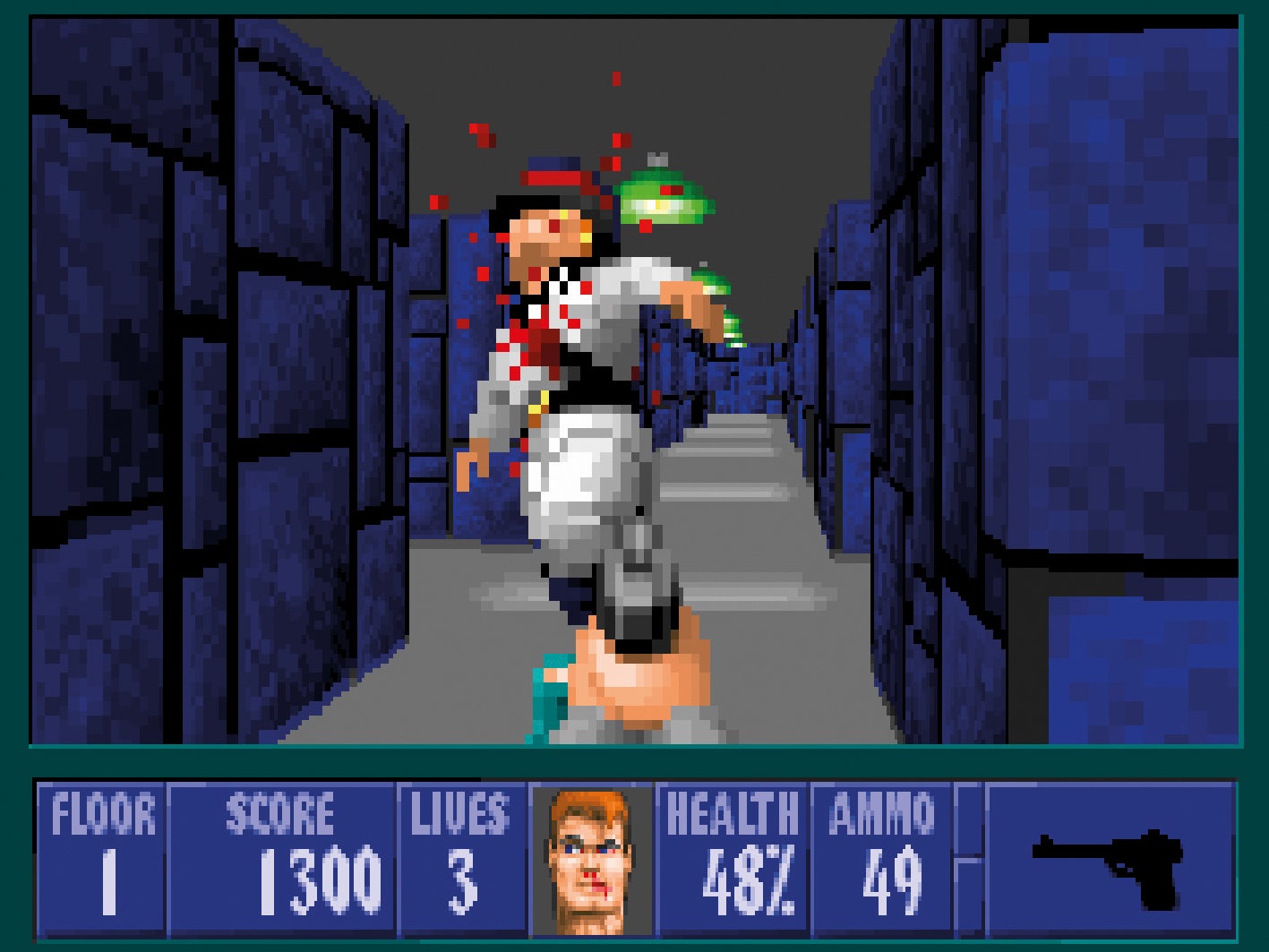Bitmap Books’ recently released I’m Too Young To Die is a slick, beautifully produced rundown of some of the most seminal years for first-person shooters, chronicling the genre from 1992 to 2002 with insight from key creatives. In this excerpt, author Stuart Maine unpicks some of the key games in an incredible year for the form.
Even if id Software didn’t invent the FPS, Wolfenstein 3D was certainly the moment the genre crossed into the mainstream. Tight gameplay, a compelling theme and the shock of such realistic graphics were critical, of course, but something else that helped Wolfenstein to reach so many players was that it was distributed as shareware.
Shareware
As hobby products, early videogames had no formal distribution network and were sold through computer stores or software clubs, usually as a disk or tape with photocopied instructions. As a result, there was a certain amount of luck involved in choosing a game; word-of-mouth recommendations were essential. Over time this evolved into more polished boxed products and magazine reviews, but people still had to pay up front for their games and hope they liked them.
‘Shareware’, a term popularised by Jay Lucas in the magazine InfoWorld, allowed people to pay for software they already had. Apogee’s Scott Miller turned this into ‘the Apogee model’: providing a portion of each game for free so players could decide if they liked it and then pay for the rest (hence Wolfenstein, DOOM and the like being divided into episodes, with the first episode given away). The rise of the internet
1 of 3 Caption Attribution The full book features in-depth interviews with the likes of Warren Spector, Ken Levine and David Doak.
Initially distributed by floppy disk, full games arrived only after players had posted payment and waited. Shareware moved online as the internet grew, first through bulletin board systems, then FTP and the World Wide Web. Now people could download shareware directly from the developer or publisher and pay for immediate access.
